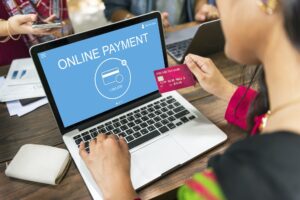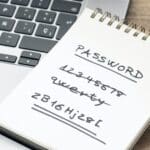Reading Time: 18 minutes
What is a VPN?
A VPN, or virtual private network, is a type of network connection that allows users to access their private networks securely and privately over the internet. VPNs are typically used by businesses and organizations to allow remote workers access to the internal networks and resources they need to do their job. However, VPNs can also be utilized by individuals who want more privacy and security when accessing the internet. With a VPN, all incoming and outgoing traffic is encrypted and routed through an intermediary VPN server in a location of your choosing. This prevents outside parties from being able to view or monitor your internet traffic, giving you much greater control over your online privacy.
Whether for personal or professional use, VPNs are an essential tool for maintaining online security and privacy.
How does a VPN work?
A VPN is a technology that allows people to safely and securely access websites and online services. At its core, a VPN uses encryption to create a secure tunnel between your device and the internet. This means that when you connect to a website or online service through a VPN, all of your data is protected from prying eyes. In addition, VPNs also mask your location so that it appears as if you are accessing the internet from another location.
While there are many different types of VPNs available, they generally work in the same way. When you sign up for a VPN service, you will be given access to special software that secures your VPN connection and changes how your data is routed on the internet. Some VPNs even allow users to access geo-restricted content by changing their virtual location.
Overall, if you value privacy and want to stay safe online, then a VPN is an essential tool to have in your digital arsenal.
20 Reasons to use a VPN
1. Protection against hackers

VPNs are a crucial tool for protecting your data and privacy online. By encrypting all of your web traffic, these virtual private networks prevent hackers from being able to easily access your information. They also mask your IP address, so hackers cannot track your location or discover any sensitive details about you. Furthermore, VPNs add an extra layer of security to your browsing experience by blocking ads and filtering out malicious websites.
Overall, VPNs provide vital protection against a wide range of cyber threats, making them an essential tool for anyone who wants to stay safe and secure online.
2. Encrypt your data
VPNs are an essential tool for protecting your data online. By encrypting your data, VPNs create a secure tunnel that prevents unauthorized access to your sensitive information. Whether you are sharing confidential business documents or streaming movies and TV shows, encrypting your data is the best way to keep it safe from prying eyes. In addition, by utilizing virtual IP addresses, VPNs allow you to securely navigate the internet without leaving any trace of your activity. And with so many different VPN options available on the market today, there is sure to be a solution that fits all of your privacy needs.
So if you want to encrypt your data and keep your digital life private and secure, a VPN is the way to go.
3. Safe access to public Wi Fi
A VPN is a great tool for accessing a public Wi Fi network safely and securely. By establishing a secure connection between your device and the internet, a VPN acts as a shield that keeps hackers and other malicious actors at bay. Additionally, VPNs often include built-in firewalls that protect your data from unauthorized access.
So whether you are connecting to a public Wi Fi network in a coffee shop, library, or airport, having a reliable VPN on hand can help ensure that your online activity stays safe and secure. And with so many affordable options available these days, there’s no reason not to invest in protecting yourself when you’re browsing on public networks.
So whether you’re checking your email or streaming video on the go, remember the importance of using a VPN to keep your information safe while surfing public Wi Fi!
4. Security and protection at any location
VPNs play an important role in security and protection, offering security and privacy to people regardless of their location. They work by tunneling a user’s entire internet connection through an encrypted connection, preventing outside parties from spying on or intercepting their activity. Additionally, VPNs help to protect users from various security threats such as malware and viruses, giving them peace of mind when accessing data online.
Ultimately, anyone who values security and privacy should consider investing in a reliable VPN service to keep their information safe and protected at all times.
5. Secure access to your company’s network
A VPN is an essential tool for businesses that need secure access to their company’s network. With a VPN, employees have a safe and encrypted connection to company resources no matter where they might be located. This helps to protect critical company data and also allows employees to work remotely when necessary. In addition, because VPN connections are encrypted, they are virtually immune to hacking or other security breaches.
So if you want guaranteed access to your company’s network and ultimate peace of mind about its security, investing in a VPN is the way to go.
6. Anonymous download
VPNs are a great way to protect your online privacy and maintain anonymity when downloading files. Unlike traditional download services that track user activity and often sell this information to third parties, VPNs create a secure tunnel between you and the VPN server. This not only protects your sensitive information from prying eyes, but it also allows you to browse and download files undetected by others. With a VPN, you can safely and easily download whatever you want without worrying about being tracked or spied on.
So if you want to make sure that your download activity remains private, then a VPN is an essential tool for staying safe online.
7. Prevent a digital file from leaking
Whether you are sharing sensitive documents with colleagues or working on a personal project that requires absolute privacy, having a VPN is an essential tool. A VPN works by creating an encrypted tunnel between your device and the internet, preventing digital files from leaking out. It not only protects the privacy of your data, but it also allows you to access leading digital files from all over the world, allowing you to work on projects in any location, regardless of local censorship regulations. Additionally, VPNs are fast and easy to use, making them the ideal solution for anyone who needs to safeguard their information online.
So if you’re looking for a simple yet effective way to prevent your digital files from being compromised, consider investing in a reliable VPN today.
8. Add more security to your online banking
 VPNs are an essential tool for online security when engaging in online banking. Unlike traditional firewalls, VPNs encrypt all of the data that flows through your internet connection, making it much more difficult for hackers to steal your sensitive information. Additionally, VPNs help to hide your physical location, allowing you to safely access accounts from anywhere in the world. By using a VPN with your online banking transactions, you can rest assured that your account is protected from unauthorized access and identity theft.
VPNs are an essential tool for online security when engaging in online banking. Unlike traditional firewalls, VPNs encrypt all of the data that flows through your internet connection, making it much more difficult for hackers to steal your sensitive information. Additionally, VPNs help to hide your physical location, allowing you to safely access accounts from anywhere in the world. By using a VPN with your online banking transactions, you can rest assured that your account is protected from unauthorized access and identity theft.
Furthermore, many banks now offer VPN services as part of their online banking platforms, so using a VPN is a smart choice for anyone who relies on online financial services.
9. Stream content wherever you’re traveling in the world
Thanks to the rise of VPNs, it has never been easier to stream content no matter where you are in the world. Whether you’re traveling for work or pleasure, a VPN gives you instant access to your favorite shows and movies, no matter where you find yourself. Unlike standard proxies, which only allow you to access a limited number of sites, a good VPN provides powerful encryption and an extensive network of remote servers, allowing you to stream virtually anything online.
Furthermore, most VPNs also offer user-friendly apps that are easy to install and use. So if you want to stream without any restrictions or worries, investing in a quality VPN is a smart choice.
10. Secure your VoIP calls
VoIP calls are a convenient and highly efficient way to stay in touch with friends, family, and colleagues. However, these calls can be vulnerable to several security threats. For example, VoIP calls are often transmitted over public networks like the internet, which may be susceptible to hacking or data interception. In addition, VoIP calls themselves may contain sensitive information that hackers could use for nefarious purposes.
To overcome these security risks, many businesses and individuals now use VPNs to create an encrypted tunnel between two devices that act as a kind of secure “tunnel” through which VoIP calls can travel safely and securely. This ensures that your VoIP conversations remain protected from prying eyes, while also providing an extra layer of privacy when you access sensitive information online or send confidential emails and messages.
With using a VPN, you can enjoy peace of mind knowing that your VoIP calls will always be secure.
11. Stop websites from tracking you
Having your online activity tracked without your knowledge can be an unsettling feeling. When you connect to the internet, it seems like any website or app that you visit can see everything about you. However, with the help of a VPN, it is possible to stop websites from tracking your activity and maintain your privacy online. A VPN establishes a secure connection between your computer and the internet, masking your identity and keeping sensitive information private. Additionally, VPNs can effectively block website trackers, preventing them from collecting data about you as you browse online.
Whether you are concerned about ads following you around or you simply want to keep your browsing habits to yourself, a VPN is an essential tool to protect online privacy and prevent website tracking.
12. Stay safe when you shop online
When you are shopping online, it is essential to stay safe and protect your personal information. A VPN works by encrypting all of the data that you send and receive online, thereby making it impossible for hackers to access. It also provides an extra layer of privacy, shielding your online activities from prying eyes. Furthermore, VPNs can help keep online traffic secure, ensuring that data like bank account information is not intercepted during transactions or that spyware programs cannot be installed on your computer without your knowledge. With so many benefits, it is no wonder that more and more people are choosing to use a VPN when they shop online.
Whether you are sending payment information over the internet or simply browsing for the latest deals, a VPN can help keep you safe and secure at all times.
13. Privacy and anonymity from third-parties
 A VPN is a powerful tool that can protect privacy and anonymity from third parties. By encrypting your data and obscuring your location, a VPN creates a secure tunnel through which you can send information safely and anonymously. This makes it difficult for hackers to obtain sensitive information, as well as allows users to bypass internet censorship and other restrictions. Additionally, many VPNs also include tools that allow users to easily browse the web anonymously, without leaving any traces of their identity behind.
A VPN is a powerful tool that can protect privacy and anonymity from third parties. By encrypting your data and obscuring your location, a VPN creates a secure tunnel through which you can send information safely and anonymously. This makes it difficult for hackers to obtain sensitive information, as well as allows users to bypass internet censorship and other restrictions. Additionally, many VPNs also include tools that allow users to easily browse the web anonymously, without leaving any traces of their identity behind.
So if you are looking to keep your private data safe from prying eyes and gain access to restricted content on the internet, a VPN might be the right choice for you.
14. Secure your home office
A home office represents an important space within any home, offering a private workspace that can accommodate everything from paying bills to studying for exams. However, home offices are also vulnerable to security threats, which can put your data at risk. One solution to this problem is using a VPN. A VPN creates a secure connection between your home office and the internet, protecting your information from hackers and other malicious actors. By encrypting data and keeping your home network hidden from prying eyes, a VPN can help to keep your home office safe and secure.
Whether you work from home every day or just need an occasional space for studying and paperwork, investing in a quality VPN is a smart choice for anyone who values the privacy and security of their home office.
15. Stop your internet service provider from selling your data
There has been a lot of debate lately about the role of internet service providers (ISPs) in protecting user privacy. Many are arguing that ISPs should not be allowed to collect and sell data, while others claim that they can legally do so under current regulations. However, one solution that has emerged as a potential way to protect user privacy is the use of VPNs. VPNs work by encrypting the data transmitted over the network, effectively blocking ISPs from being able to track users and their activities. As such, VPN technology has the potential to be an effective tool for preventing internet providers from selling our data without our consent.
Whether or not it will ultimately succeed in this goal remains to be seen, but for now, it appears to offer a promising solution for maintaining our privacy in the digital age.
16. Secure your remote collaboration
VPNs are an essential tool for remote collaboration. By creating a secure, encrypted connection between two remote devices, VPNs allow users to work and communicate freely, even when they are miles apart. This is particularly useful for businesses and other organizations that rely on remote workers to complete important tasks. With a VPN in place, remote teams can easily share documents and information, collaborate on projects in real-time, and communicate quickly and efficiently. Moreover, since VPNs encrypt all data exchanged through the network, they help to ensure that sensitive information remains safe from prying eyes.
As such, VPNs are one of the most effective tools for securing remote collaboration and ensuring that remote work efforts remain efficient and productive.
17. Anonymously Conduct Sensitive Research
VPNs are an essential tool for researchers who need to conduct sensitive or confidential work. By creating a virtual, private network that masks the user’s actual IP address, VPNs allow users to surf the web anonymously and access data without fear of being tracked or monitored. This makes VPNs ideal for sensitive research projects that require detailed information about sensitive topics such as health and wellness, human rights, or social justice issues.
Whether you are researching potential cures for diseases, trying to uncover discrimination in the workplace, or carrying out other sensitive work, a VPN can help ensure that your research is conducted privately and without any risk of exposure.
18. Avoid bandwidth throttling / Improve your internet speed
 For many internet users today, bandwidth throttling is a major source of frustration and inconvenience. This practice, in which providers intentionally restrict internet bandwidth speed for certain users or activities, can significantly diminish the overall quality of one’s internet experience. However, by using a VPN it is possible to prevent bandwidth throttling and improve your bandwidth speed.
For many internet users today, bandwidth throttling is a major source of frustration and inconvenience. This practice, in which providers intentionally restrict internet bandwidth speed for certain users or activities, can significantly diminish the overall quality of one’s internet experience. However, by using a VPN it is possible to prevent bandwidth throttling and improve your bandwidth speed.
By using advanced encryption technology, VPNs help to protect your data from being detected by bandwidth throttling tools. Additionally, because VPNs mask your IP address so that providers cannot track the specific sites you are visiting, they are also an effective way to avoid other forms of internet usage tracking and monitoring.
19. Enjoy Worldwide Unrestricted Internet Access
A VPN is a tool that allows you to enjoy unrestricted internet access regardless of your location. This powerful tool reroutes your connection through a secure remote server, making your connection more private and secure. By masking your IP address, a VPN can help you to access content from any country on earth and avoid censorship and other restrictions on certain websites. Additionally, thanks to its enhanced security features, a VPN can help protect your data from being intercepted or monitored by malicious actors online.
Whether you’re traveling abroad or simply looking to expand your horizons online, a VPN is an essential tool that can help you truly enjoy the wonders of the internet without restrictions.
20. Stream Sports Shows & Movies From Anywhere In The World
VPNs offer a convenient and effective way to stream sports shows and movies from anywhere in the world. With a VPN, you can access streaming services like Netflix or Hulu no matter where you are. This allows you to watch your favorite content even when you’re traveling abroad or living in a country with strict restrictions on streaming content. Additionally, because VPNs encrypt your data and hide your location, they are also useful for protecting your sensitive information while browsing online.
Whether you’re watching the big game or checking out the latest Hollywood blockbuster, a VPN is an essential tool for streaming media on any device. So why wait? Sign up for a reliable VPN today and start streaming sports shows and movies right away!
Frequently Asked Questions
Should I use a VPN at home?
VPNs are a great way to secure your internet traffic at home, keeping your data and information safe from prying eyes. A VPN essentially acts as a shield, encrypting all of your online activity so that no one can monitor or track it. With VPNs, you can safely browse the web from any location, making them an especially useful tool if you do a lot of work from home or travel frequently.
VPNs also give you access to restricted content, allowing you to bypass geo-blocks and other forms of censorship to stream movies or TV shows that may normally be blocked in your country.
Is using a VPN legal?
Whether VPN usage is legal has long been a topic of debate among Internet users. Some argue that VPNs allow individuals to access content that is otherwise blocked in their region, giving them more freedom and flexibility online. Others point out that VPNs can be used to circumvent copyright laws, allowing users to illegally stream TV shows and movies or download pirated content. However, despite the potential risks associated with VPNs, many experts agree that VPN usage is generally legal. A VPN simply masks a user’s IP address and encrypts their data, helping them to protect their privacy while surfing the web. For this reason, VPN use is typically considered to be within the law as long as it is being used for legitimate purposes.
So while VPNs can certainly be abused or used for nefarious purposes, in general, they are perfectly legal tools for protecting your online privacy and accessing restricted content.
Global legality concerns
VPNs have become an increasingly popular tool among internet users looking to maintain online privacy and security. While these VPNs can be very useful for protecting data and providing anonymity when browsing the web, they are not without their global legality concerns. Many countries have strict regulations around VPN use to protect sensitive information and intellectual property rights. For example, many countries such as Iran and China prohibit residents from accessing certain websites or using VPNs altogether due to fears of surveillance and information manipulation. Additionally, some social media platforms, like Facebook and Twitter, often have regional restrictions that can limit access for users outside of a designated area. Thus, global usage of VPNs requires careful consideration of the potential legal implications in each country where a user may be located.
Ultimately, users need to do their research before turning to VPNs as a means to secure their data or gain unfettered access online.
Should I leave my VPN on all the time?
While VPNs can be a great tool for enhancing your online security and protecting your data, it is not always clear whether or not you should leave your VPN on all the time. There are both advantages and disadvantages to doing so, and which side of the argument right comes down to your specific needs and preferences.
On the one hand, leaving your VPN on can offer many benefits. For starters, it helps to mask your IP address by routing all of your traffic through an encrypted VPN tunnel, making it more difficult for hackers or other prying eyes to track or monitor you online. In addition, VPNs often provide better protection against malware threats like viruses and spyware. Furthermore, some VPNs have features like built-in firewalls that help to further protect the security and privacy of your data.
On the other hand, leaving your VPN on all the time does come with some potential drawbacks as well. For instance, most VPNs tend to use more system resources than usual whenever they are turned on, which can lead to slower speeds or even crashes or bugs in certain applications. Some VPNs also only give you a limited amount of data per month or may have artificially reduced download limits depending on location. Finally, it is important to remember that using a VPN does not guarantee 100% protection from all cyber threats – so while having one turned on may help boost security overall, it is still important to practice safe browsing habits at all times and implement additional measures as needed.
In short, whether or not you should leave your VPN on will depend largely on what kind of online activities you engage in and what level of risk you are comfortable taking on when browsing the web.
What are the limitations of VPNs?
VPNs can be an incredibly useful tool for businesses and individuals alike. They allow users to create secure, encrypted connections to remote servers, enabling them to browse the web, access sensitive data, or make online transactions with greater privacy and security. However, VPNs do have limitations. One key drawback is that many VPNs can be difficult to set up and maintain. They require specialized software or hardware, which may not always be easy to find or configure. Additionally, certain types of traffic like streaming video are not always easy to support on a VPN connection.
Finally, some VPN services suffer from connectivity issues that can cause slowdowns or drop-offs in your connection.
Is a VPN really necessary?
There is no doubt that VPNs have become an essential tool for many internet users these days. Whether you are a business owner trying to protect sensitive data, or simply a casual web surfer wanting to access content that may be restricted in your location, VPNs provide a valuable service by keeping your online activities secure and private. Depending on your particular needs, VPNs can help to protect your personal information from hackers and trackers, or bypass oppressive internet censorship regimes. So while some might argue that VPNs are not necessary in today’s digital world, the reality is that VPNs have become an indispensable part of our online experience.
Whether you’re working remotely, streaming movies or TV shows, or just browsing through your favorite social media sites, VPNs are crucial for protecting yourself and maintaining a free and open internet.
Should my business use VPN?
VPN is a technology that can be used in a variety of different settings, including business environments. VPNs provide a layer of security and privacy to data transmission that is critical in today’s digital world. They encrypt all incoming and outgoing traffic, ensuring that sensitive information stays safe from prying eyes. Additionally, VPNs allow businesses to navigate geographically restricted content easily, meaning that employees can access files and resources no matter where they are located. For these reasons, many businesses are turning to VPN technology as an effective way to keep their data safe and increase productivity.
Whether you are considering a VPN for your own company or looking for an effective solution for your clients, it’s important to carefully weigh the pros and cons before making a decision.
When should I turn off my VPN?
There is no definitive answer to this question, as it will depend on various factors such as your VPN provider, your usage habits, and the level of privacy you desire. Generally speaking, if you plan on doing online activities that may require a high level of security and privacy, like online banking or shopping, then it is best to keep your VPN turned on at all times. However, if you are only accessing basic websites and apps that do not contain sensitive information, then it may be fine to turn off your VPN when you’re not actively using it.
Ultimately, the best way to determine when you should be turning off your VPN is to assess the level of risk and sensitivity of each online activity that you perform.
Is there any risk associated with VPNs?
While VPNs offer many benefits, there are also some potential risks associated with using this technology. One risk is that VPN connections can sometimes be slower than those offered by your regular internet service provider. Additionally, VPNs can allow malicious users to infiltrate your system and potentially steal sensitive information such as passwords or financial data.
VPNs can cause connection issues on some websites or gaming platforms that rely on identifying individual users based on location, thereby preventing users from accessing content deemed to be off-limits in their country of residence. Despite these potential risks, VPNs remain a valuable tool for enhancing internet security and privacy, and they continue to grow in popularity year after year.
Does a VPN slow down your internet connection?
There is a lot of debate surrounding the use of VPNs and whether they slow down internet connections. Some people believe that using a VPN will lead to slow download speeds and sluggish web browsing, while others insist that using a VPN has little or no effect on internet speed.
Several factors can affect speed, including network congestion, router or modem settings, and poor connection quality. Researchers have found that when these other factors are taken into account, there is very little difference between speeds with and without a VPN in place. The key is to choose a reliable, high-quality VPN with a remote server located close to your location. This will ensure good performance without a significant impact on your overall internet speed.
So in short, the answer to the question of whether a VPN slows down your internet connection depends on several important factors: the strength of your connection, the quality of your VPN provider, and external elements such as network congestion.
With careful consideration and smart choices for both your connection and your VPN provider, you can enjoy lightning-fast online speeds even when using a virtual private network.
What VPN should I use?
When it comes to VPNs, there are many different options to choose from. Some of the most popular VPN providers include NordVPN, Express VPN, and CyberGhost VPN. These VPN providers offer a wide range of features, including advanced security protocols, reliable connection speeds, and user-friendly interfaces. Additionally, they make it easy to choose between different locations and work with a variety of devices. If you’re looking for a VPN that offers top-notch security and great flexibility, then one of these VPN providers would be a good choice for you.
Ultimately, the right VPN will depend on your specific needs and preferences, so be sure to do some research before making your decision. At the end of the day, though, you can’t go wrong with any of these popular VPN providers.
How do I set up a VPN?
There are many different ways to set up a VPN, depending on your particular needs and preferences. Some VPNs are quick and easy to configure, while others require more advanced technical knowledge or customized software. When setting up a VPN, the first thing you need to do is determine what type of VPN you want to use. Public VPNs are free and can easily connect you to various public networks around the world, but they may be slower and less reliable than private VPNs. Private VPNs, on the other hand, provide much greater security and privacy but typically require a paid subscription or one-time setup fee.
Once you have chosen your VPN type, the next step is figuring out how your VPN will connect to your computer or device. There are several methods for doing this, including through built-in software, dedicated VPN apps that you can download from an online store, or manual configuration settings that require more technical know-how. Regardless of which method you choose, it’s important to make sure that your VPN has strong security features that will protect your data from hackers and other online threats.
Once you have everything set up and running smoothly, it’s important to keep an eye on things like server load and speed to make sure that everything is working as intended. You may also need to update your VPN periodically with new security patches or additional features if needed.
Overall, with a little research and some basic technical skills, setting up a VPN should be relatively straightforward no matter which approach you take.
Summary
When it comes to using a VPN, many different factors can affect your internet speed. These include the strength of your connection, the quality of your VPN service, and external elements such as network congestion. To maximize your online speeds when using a VPN, it is important to choose a reliable provider with strong security features and remove servers that are not overburdened with heavy traffic. Additionally, you should familiarize yourself with the various setup options and choose a method that is best suited to your technical skills and preferences. With these steps, you can enjoy fast and reliable internet speeds even when using a virtual private network.2








